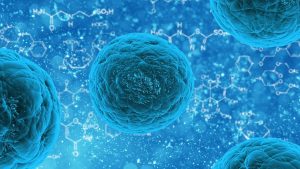
Stem cell advancements exist at the intersection of medicine and research. The advances are very exciting, but sometimes it seems like it’s a different language. The following is some insight as to how to untangle some of the messaging that you may hear when communicating about stem cells and umbilical cord blood banking.
- Autologous – derived from the patient’s own body. For example, your own cord blood stem cells are autologous to you
- Allogeneic – a transplant using stem cells or an organ from a donor other than yourself
- Bone marrow stromal cells – are a diverse colony of cells that provide support for hematopoietic cells
- Clinical trial – A research study in which participants are prospectively assigned to one or more interventions to evaluate the effects of those interventions on health-related biomedical or behavioral outcomes.
- Cord blood – the blood from the umbilical cord and placenta, rich with hematopoietic stem cells
- Cryopreservation – the preservation of cells and tissue at very low temperatures (-196°C or -321°F)
- Hematopoietic – pertaining to the blood system. Often used to refer to blood forming stem cells (Hematopoietic stem cells, HSC)
- Mesenchymal stem cells (MSCs) – a type of stem cell responsible for the formation of numerous connective and other tissues. MSC’s are found in high numbers in bone marrow, umbilical cord tissue, and other tissues in the body
- Pall collection bag – a sterile medical tool specifically made for the collection of cord blood
- Pluripotent stem cells – Stem cells with the ability to become a wide range of cells and tissues
- Regenerative medicine – the ability to rejuvenate, replace, or regenerate damaged or lost cells due to injury or disease. Often used in conjunction with stem cells
- Sepax machine – an automated device engineered to process cord blood
- Undifferentiated Cell – referring to stem cells that have not begun the processes of forming other cells or tissues